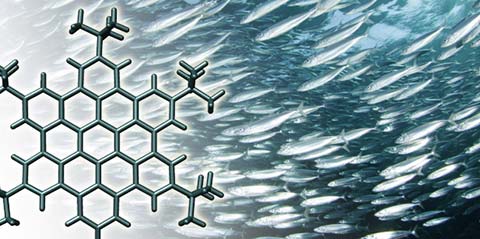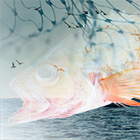


Kristie Willett
As our environment absorbs the byproducts of human activity, from the plastics we toss to the estrogenic compounds that leach into the water supply as a result of hormonal birth control use, the question is urgent: How do these contaminants affect our health and the health of generations to come? The University of Mississippi’s Environmental Toxicology Research Program is seeking answers.
The cornerstone of Kristine Willett’s research uses fish to investigate exposure to polycyclic aromatic hydrocarbons, or PAHs, a group of ubiquitous pollutants including a toxicant found in cigarette smoke, car exhaust, coal, oil and other sources. In mammals, exposure to PAHs during gestation is implicated in preterm delivery, low birth weight, impaired cognitive function and childhood cancers. New research suggests that the effects of exposure may last for generations, even without additional exposure.
With funding from the National Institutes of Health, Willett is determining how PAH exposure affects up to three generations of fish offspring.
“We’re looking for multi- and trans-generational effects,” said Willett, professor of pharmacology and professor in the Research Institute of Pharmaceutical Sciences. “We’re looking at both development and reproduction abilities, and we’re also looking at gene expression and epigenetics—the idea that it’s not a mutation that’s causing it; it’s another change that would affect gene expression.”
The research may also demonstrate the value of using fish models.
“Fish are uniquely suited to look for multigenerational effects—they reproduce quickly, and with a fish, you get hundreds of eggs, so you can really see statistical differences,” Willett said.
In another ongoing research project, Willett studies the toxicity of nanosilver particles. Modern medicine and industrial developers have made rapidly increasing use of nanosilver because of silver’s natural antibacterial and antifungal properties; the particles are included in everything from washing machines to socks. Research sponsored by the U.S. Army Engineer Research and Development Center allows Willett to study how nanosilver particles accumulate within living organisms and to determine whether nanosilver particles are more or less toxic than traditional ionic silver.
Willett is also involved in several Mississippi-based projects. With colleagues from across the UM campus, she is participating in an interdisciplinary assessment of mercury risk in fish collected from Enid Lake. Following Hurricane Katrina and the Deepwater Horizon oil spill, Willett assessed toxicological risk in the Gulf of Mexico. To evaluate data in such a way that it could inform future decisions about oil spill remediation, Willett studied oysters. Together, the projects share a common goal: protecting Mississippians from environmental contaminants.



